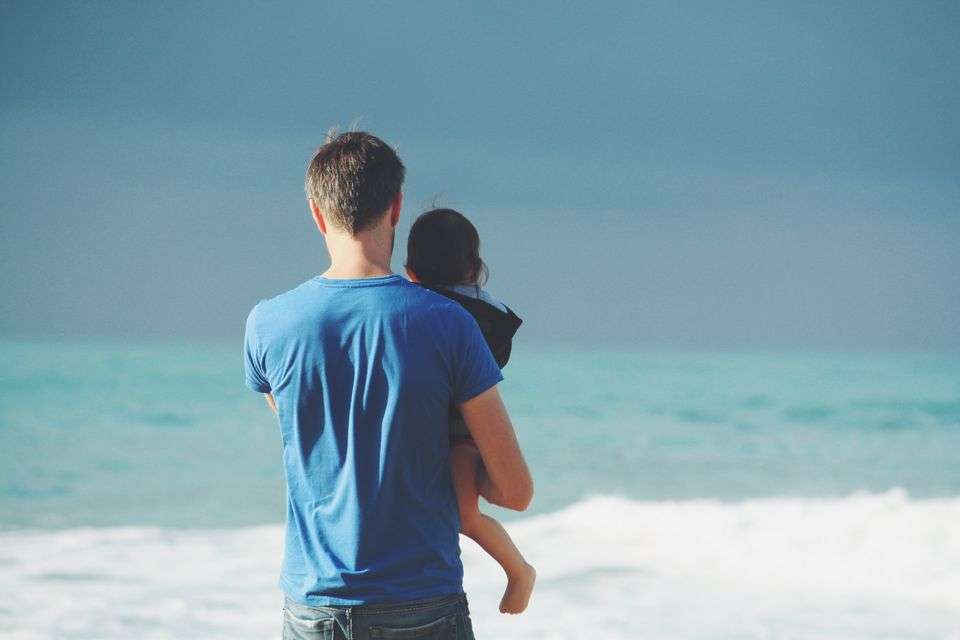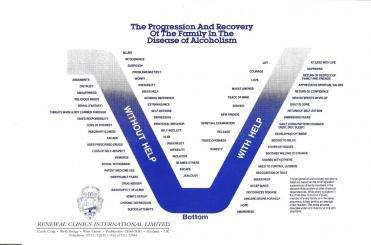Reviewed by Chris Burn, addiction therapist for Castle Craig
Parenting receives a pretty bad press these days, and rightly so, in many cases.
Rehab Costs & Options for Alcohol | Drugs | Other addictions
Busy parents don’t have time to fulfil this vital role, or they push responsibility onto schools. When parenting is inconsistent, casual, uninformed, or even abusive, the one who suffers most is the child. And at a time when children are subjected to different stress and pressures than the parents ever had themselves, something clearly needs to be done.
Does Saligari’s new book on proactive parenting have any lessons to teach us? And does it have anything useful to say on how parenting might contribute to addiction later in life?
“They f**k you up, your mum and dad.
They may not mean to, but they do.
They fill you with the faults they had
And add some extra, just for you”
Philip Larkin’s immortal “This Be The Verse” sounds no less biting these days than when it was written nearly fifty years ago. Mum and Dad are still f**king you up, but now they’re blaming everyone else.
This book aims to reverse things by putting the responsibility back with the parents, where it belongs, but in a helpful, insightful and practical manner. Prisons, rehabs and mental hospitals have swollen populations and levels of addiction and other unhappiness are rising. So this book is timely and highly relevant.
“Help your child conquer self-destructive behaviours and build self-esteem”
It is a book that all parents should read. As one who thinks that parenting is the most important job in the world, yet remains tormented by his own failure to do it properly, I found this book very gripping indeed. I found chapters 1 and 7-12 riveting, and informative on proactive parenting, a subject I didn’t know well. The middle wodge of chapters 2-6 I was more familiar with, as an addictions therapist. It contained very useful information on the nature of addiction, and aspects of addiction. For anyone seeking to learn more about how addiction might be affected by, or affect, parenting, this is a good place to start.
Despite the numerous positives, I did find myself wondering if a book whose sub-title is ‘Help your child conquer self-destructive behaviours and build self-esteem’ needs to address the matter of addiction quite as early as chapter 2. This might lead some to imagine that addiction is the most likely outcome of a child’s self-destructive behaviours and low self-esteem. The author does acknowledge that there are many other possible outcomes. Nevertheless, it would be a pity if parents of six and seven year olds ended up, to use her words: “seeing the potential for addiction in everything”.
Having made this comment, I am struck by a sudden thought. My own dire journey into the heart of alcoholism may well have started with childhood trauma and resultant self-esteem problems, before the age of seven. Perhaps Saligari has a point after all.
“You teach best what you need to learn”
Mandy Saligari is an acknowledged leader in her field and does a lot of influential work talking to parents and schools as well as in her role as a therapist. Her book is full of wisdom and advice that will help anyone struggling with family dynamics, whether or not addiction enters the picture.
Throughout, I found mind-opening phrases such as:
“the internet – the alternative parent”
“rescue creates a victim”
“you teach best what you need to learn”
These alone make it a worthwhile read, but there is a lot more.
“Guilt, Shame and Anger”, “Boundaries and Rules” and “Self-esteem” are a few of the chapters that combine what I imagine will be new insights for many. There is really practical advice in there, on how best to apply proactive parenting. For example: “delivering a rule with boundaries is likely to have a more successful outcome than a rule without”. I read each chapter several times.
The chapter on “Modelled Behaviour” was another ‘can’t put down’ moment for me. Being the sort of parent that your child wants and deserves, is so much harder than first appears. How can you warn a child about toxic resentments when you have them yourself? What effect does it have on a child to see you lose your temper?
Proactive parenting: a healthy family is one that talks openly about their feelings
All books to do with therapy talk about feelings, the two are inseparable. As Saligari puts it, “Feelings are what we have the most of but know the least about”. Yet feelings, thoughts and behaviour are interconnected and we store up a lot of potential harm for ourselves when feelings are repressed. A healthy family is one that talks openly about their feelings. Part of good parenting is making sure that this happens.
Proactive parenting means taking responsibility for doing one’s best as a parent and role model. In particular, it means focusing on early prevention of negative consequences, addiction among them. As another commentator put it: “it’s easier to grow a strong child than fix a broken adult”. But every bit of help and support along the way should be recognised and used. In this respect, the author could perhaps have said more about the powerful support provided by self-help groups such as Families Anonymous and Alanon. These groups recognise the genetic characteristics of addiction and often have members who are starting young families.
This book will most certainly help Mum and Dad to grow a strong child but it’s still going to be a long haul. It’s one thing to ‘talk the talk’ but quite another to ‘walk the walk’. The book aims to help families take action as well as to understand. If it does nothing else but help parents take responsibility for the task, it will be a great achievement. But I believe it will do more than that.
I can’t think of a better present for Mothers’ or Fathers’ Day.
Proactive Parenting by Mandy Saligari



